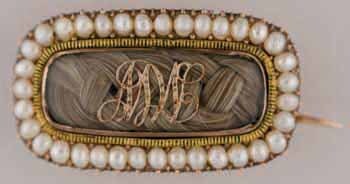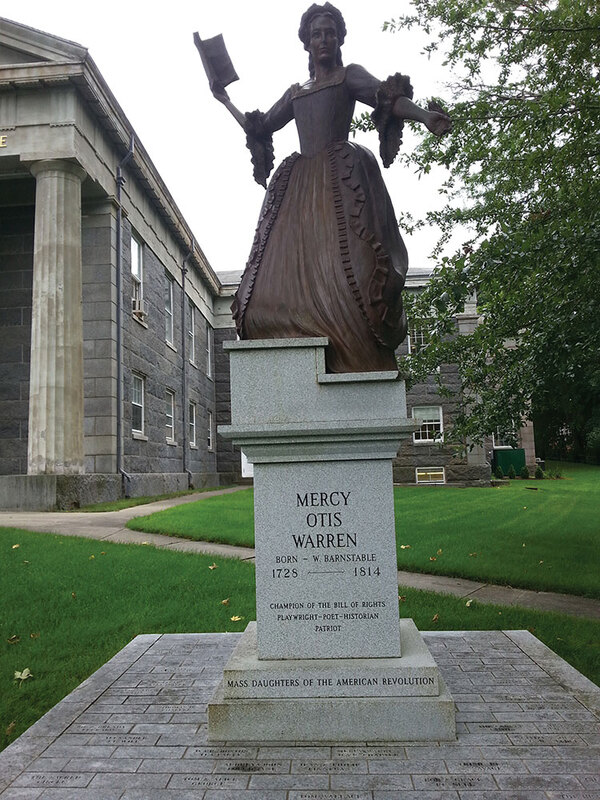The Response to Mercy Otis Warren
Though Mercy Otis Warren was a published writer, her most important supporters and critics were much closer to home. Historian Rosemarie Zagarri argued that Mercy Otis Warren was allowed to continue in her role as a political writer because the men in her life supported her “particularly when she did what men told her to do.”[1] This certainly holds true for her husband, James Warren, who fully supported his wife’s writings and her authority to do so. Similarly, her writing was held in high regard by her friend, John Adams. In 1775, he wrote to James in response to Mercy’s previous letter asking “parden for touching on war politicks”[2] to ensure she understood he did not require the apology. He wrote “I never thought either Politicks or War, or any other Art or Science beyond the Line of [Mercy’s] Sex: on the contrary I have ever been convinced that Politicks and War, have in every age, been influenced, and in many, guided and controuled by her Sex.” He continued that even if he did not feel that way about women in general, he “should certainly think that [Mercy and Abigail], ought to be Exceptions, because I have ever ascribed to those Ladies, a Share and no small one neither, in the Conduct of our American Affairs.”[3] In fact, as Zagarri points out, “[John Adams] treated her as a confidant and an intellectual equal.”[4] John Adams even encouraged her to write about important events, again writing to her husband James referencing Mercy as a “poetical genius” and he wished “to See a late glorious Event, celebrated, by a certain poetical Pen, which has no equal that I know of in this Country.”[5]
From her perspective, the culmination of her skill as an authoress came in 1805 with the publishing of her magnum opus History of the Rise, Progress, and Termination of the American Revolution which was a full accounting of the war with Great Britain. This work, which she considered her life’s work, was published to resounding silence unlike her first publication which had opened to resounding praise. At this point in her life, as well, she and her husband had become vocal anti-Federalists and Mercy had written openly against the ratification of the Federal Constitution, much to the disapproval of their political compatriots, which may have played a significant role in the work’s poor sales. John Adams, in particular, found great fault with the work and, more specifically, the role he played in the written history. The two, Mercy and Adams, embarked on a bitter back-and-forth correspondence beginning in July of 1807 when John wrote Mercy a lengthy letter outlining his grievances with her work. He concluded his strongly worded list of complaints “Shall I indulge in retaliation, or no I shall proceed no farther at present, but expect with impatience your Answer. In the meantime I shall prepare more for your Consideration. My Regards to the General, and believe me Still your Friend, though with some Grievances to complain of.”[6] Mercy quickly responded, five days letter, with a long missive of her own denouncing his language and defending herself writing that she had “written under a strong sense of the moral obligation of truth, adhering strictly to its dictates according to the best of my information, which I endeavored to draw from the purest sources.”[7] Despite her defense, Adams seemed unmoved when years later he famously wrote to a friend that “History is not the Province of the Ladies.”[8] The two couples (the Warrens and the Adams’) would later reconcile once they had moved past some of their differences.
[1] Zagarri, A Woman’s Dilemma: Mercy Otis Warren and the American Revolution, 72.
[2] Mercy Otis Warren to John Adams, September 4, 1775. “The Adams Papers Digital Edition, Massachusetts Historical Society.”
[3] John Adams to James Warren, September 26, 1775. “The Adams Papers Digital Edition, Massachusetts Historical Society.” What is interesting, however, is that he conveyed this letter to James and not Mercy directly.
[4] Zagarri, A Woman’s Dilemma: Mercy Otis Warren and the American Revolution, 90.
[5] John Adams to James Warren, December 22, 1773. “The Adams Papers Digital Edition, Massachusetts Historical Society.”
[6] John Adams to Mercy Otis Warren, July 11, 1807. “Founders Online.”
[7] Mercy Otis Warren to John Adams, July 16, 1807. “Founders Online.”
[8] John Adams to Elbridge Gerry, April 17, 1813. “Founders Online.”

Mercy Otis Warren Brooch
This brooch belonged to Abigail Adams and contains a lock of hair belonging to her friend Mercy Otis Warren. It was commissioned by Adams as a symbol of their renewed friendship.
